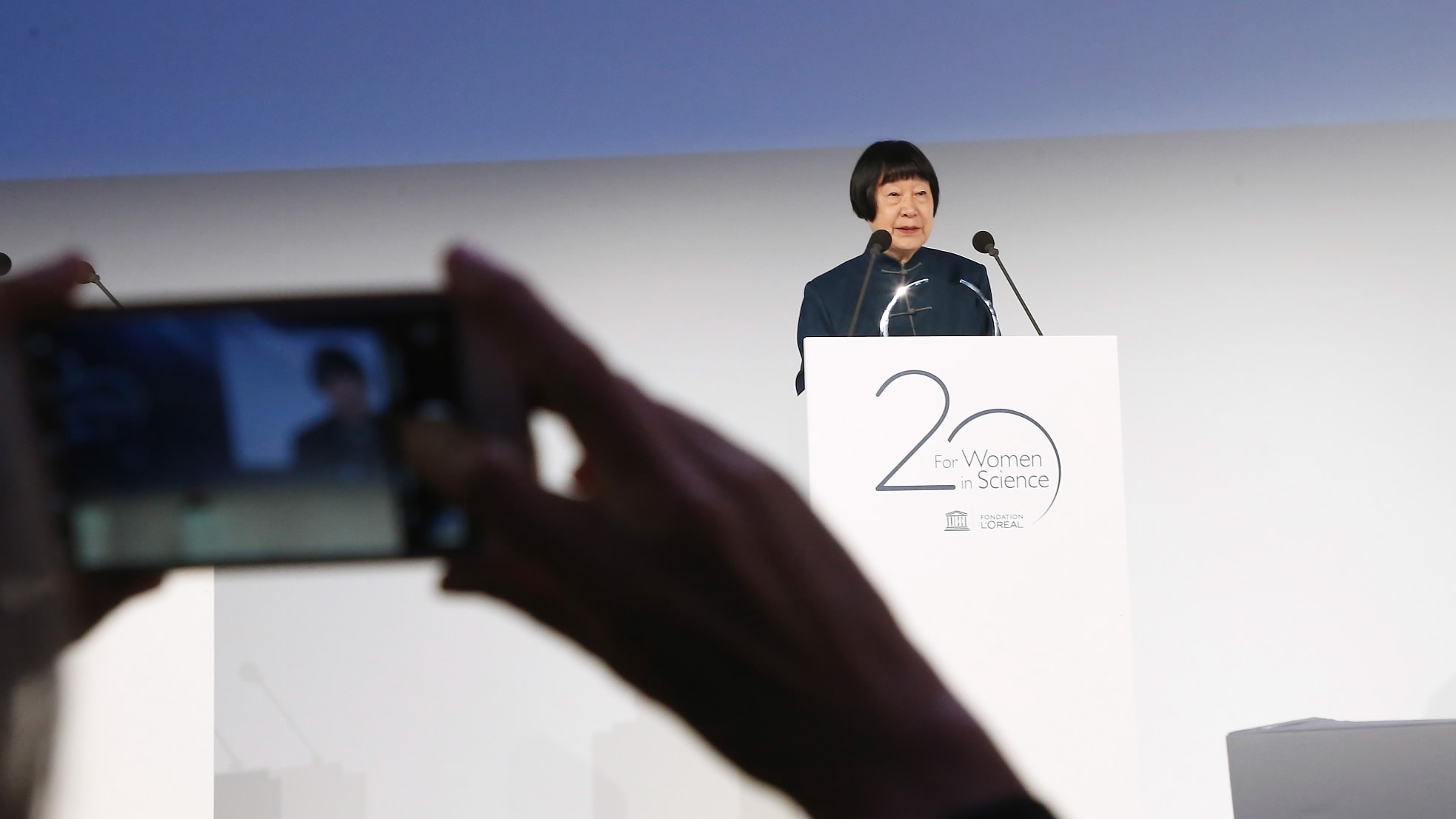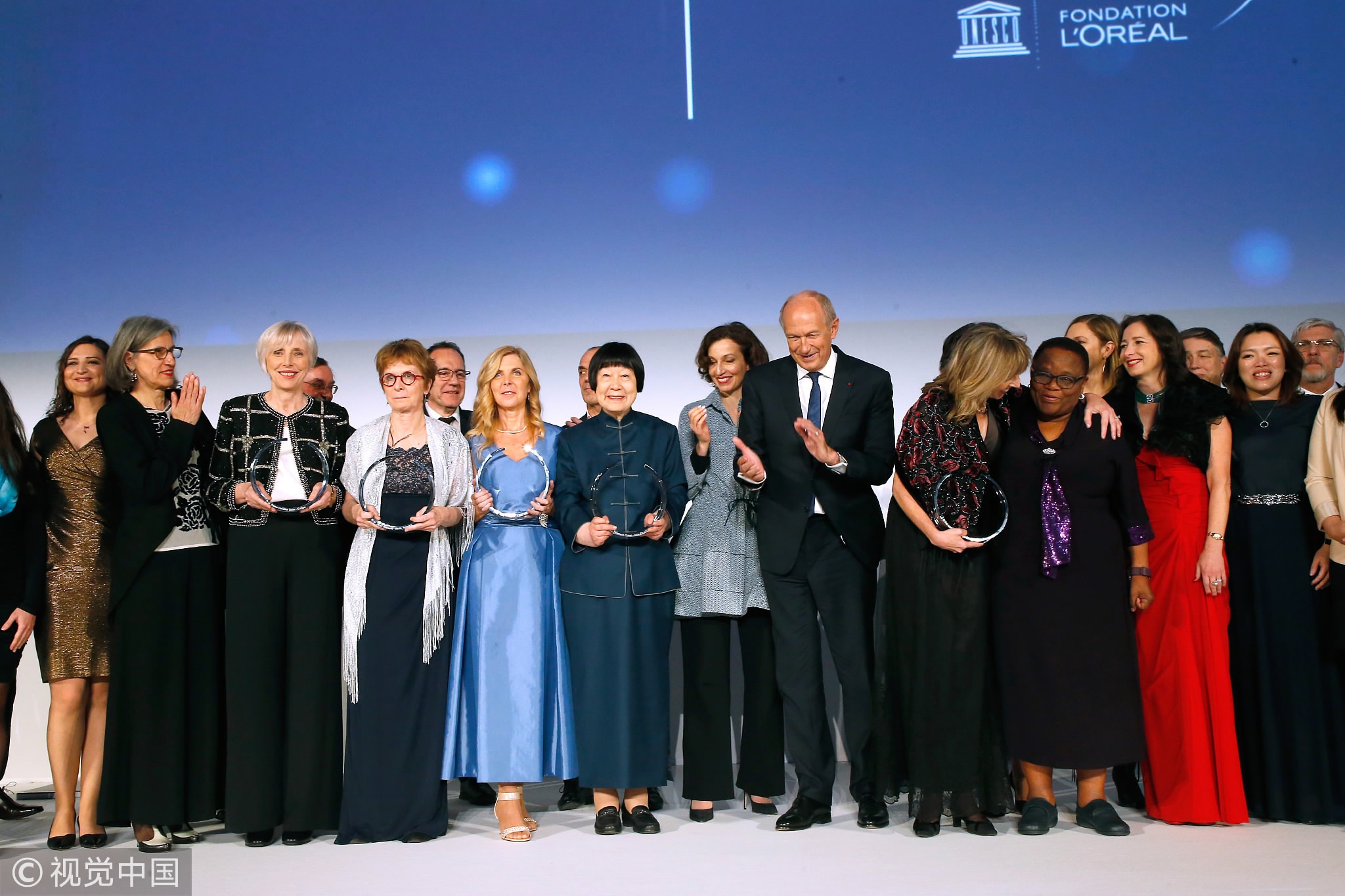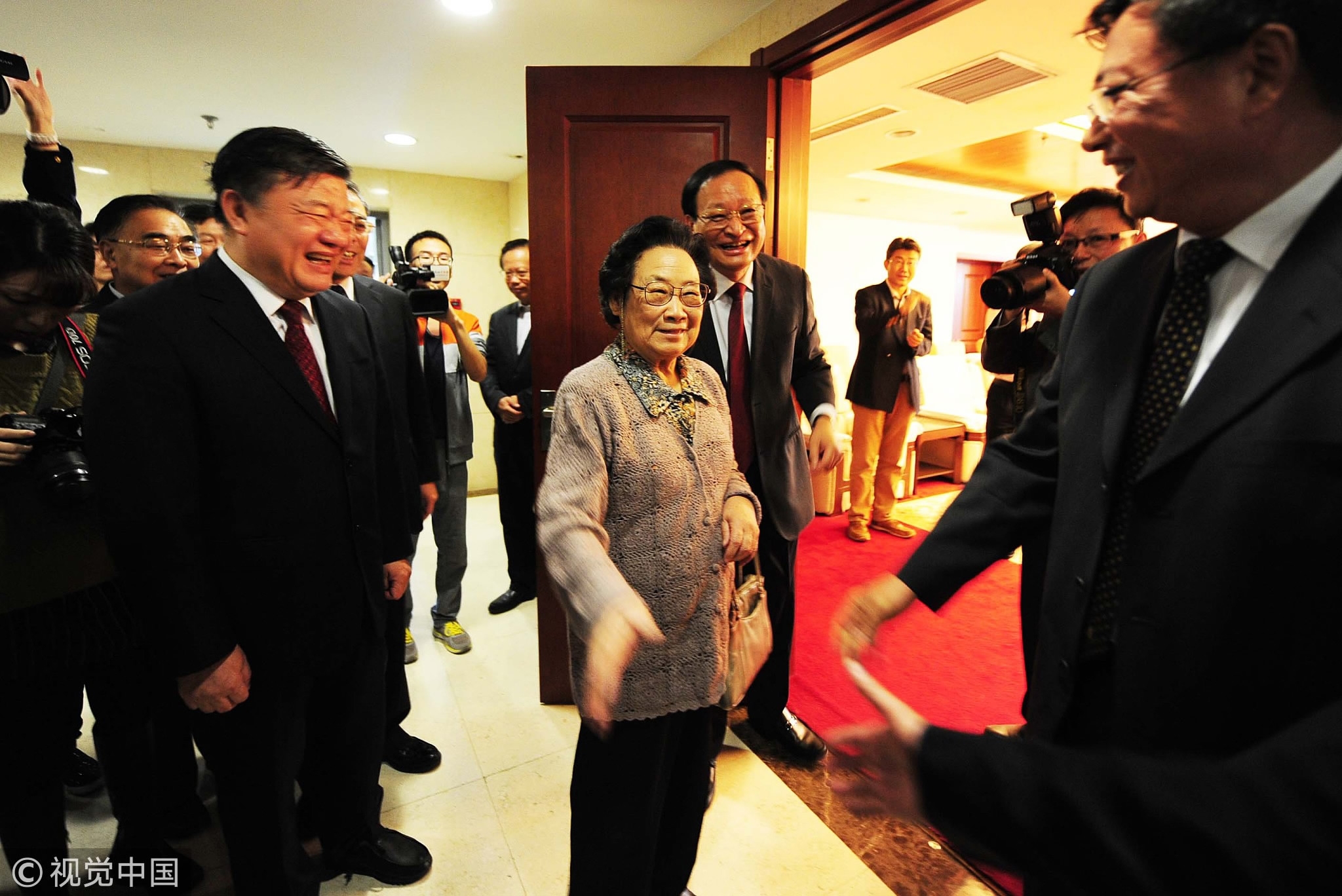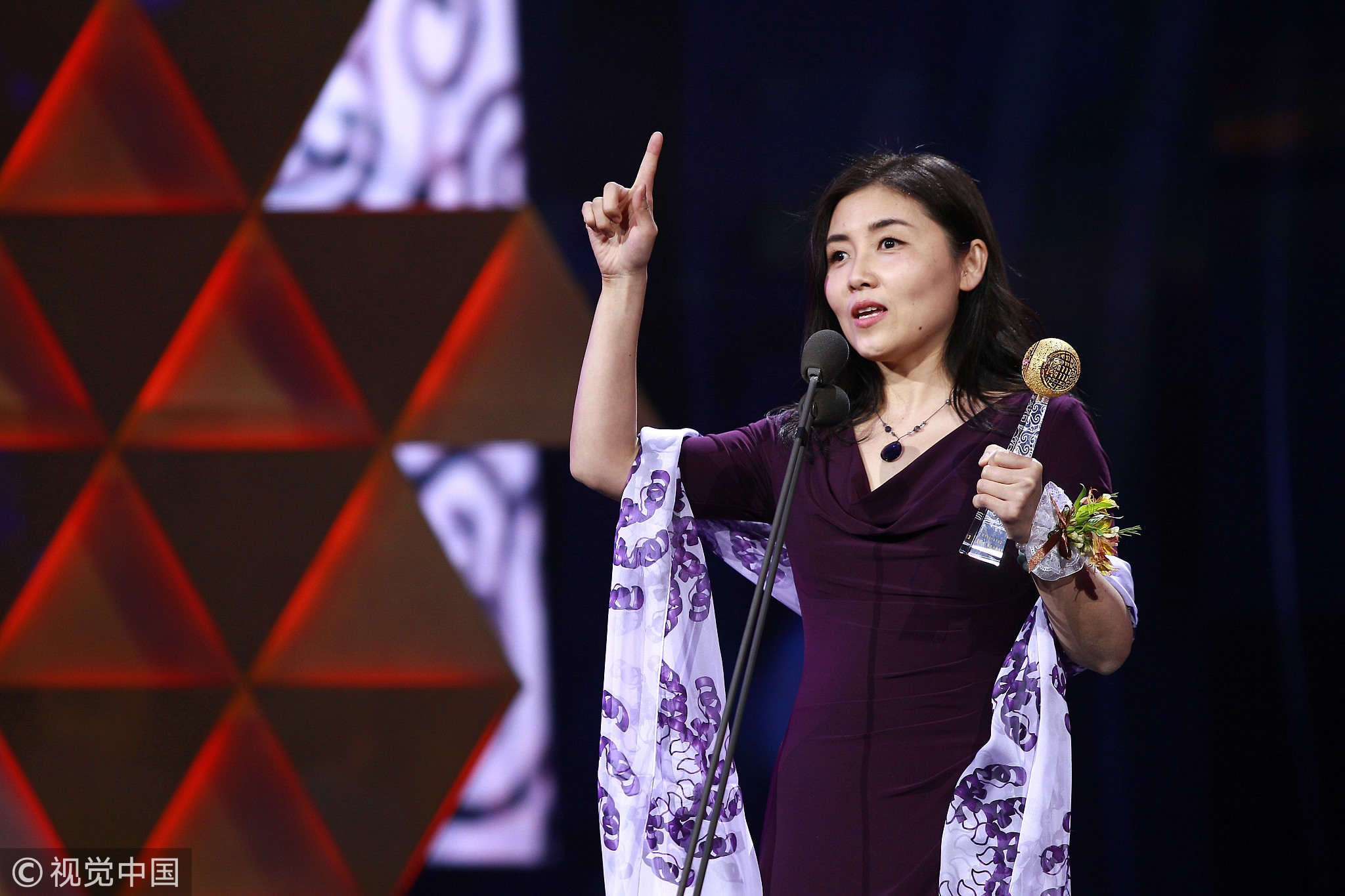
China
14:58, 26-Mar-2018
UNESCO award sheds light on women's contribution in science
CGTN

Chinese paleontologist Chang Mee-Mann joined the ranks of laureates of L’Oreal-UNESCO for Women in Science Awards over the weekend, shedding the light on female science pioneers in a country that boasts the highest percentage of female students in science and engineering in the Asia-Pacific region despite prevailing prejudice.
The 82-year-old scientist of the Institute of Vertebrate Palaeontology and Palaeoanthropology in China, was honored for "her pioneering work on fossil records leading to insights on how aquatic vertebrates adapted to life and land," the United Nations Educational, Scientific and Cultural Organization (UNESCO), the UN's cultural agency, said.
The award is part of an initiative created 20 years ago to support and recognize accomplished women researchers. It aims to set an example for young females and encourage them to enter a field that has long been dominated by men.
It's a sad, but well documented fact that women are underrepresented in the professional life, and the scientific sphere is no exception. The issue is further compounded by archaic misconceptions about women's skills and capabilities.
A 2015 survey by the L'Oreal Foundation revealed some disturbing results revolving around global perceptions of female scientists.
Sixty-seven percent of Europeans think women lack the skill set that enables them to climb the ladder in the realm of science, and reach high-level positions. In China, the numbers are scary. A staggering 93 percent of respondents believe women are not made to be scientists.
A long lineage of pioneering women
Most people might have heard of French-Polish physicist Marie Curie or British primatologist Jane Goodall. But Chinese female scientists have slipped under the radar of many, despite their work changing the world.
Chang's achievement brings more visibility to Chinese women's contribution in the field of science.

At the 20th edition of the ’Oreal-UNESCO for Women in Science Awards. /VCG Photo
At the 20th edition of the ’Oreal-UNESCO for Women in Science Awards. /VCG Photo
Tu Youyou won the 2015 Nobel Prize in Medicine for her discovery of the anti-malarial drug artemisinin, a drug based on traditional Chinese herbal medicine which has helped save millions of lives in Africa and China.

Chinese pharmaceutical chemist Tu Youyou. /VCG Photo
Chinese pharmaceutical chemist Tu Youyou. /VCG Photo
Zhang Zhenxiang, China’s first female archaeologist, spent 36 years excavating ruins in the ancient city of Yin (known as Anyang today), the capital of the Shang Dynasty (1600-1046 BC).
In 1976, Zhang organized an excavation at a former palace site in the Yin Ruins. After months of hard work, nothing surfaced and the expert team grew frustrated and was ready to quit. However, it was Zhang's insistence to continue digging and her innovative technology that eventually led to the discovery of a tomb in the area.
In China, an award for Women in Sciences jointly founded by the UNESCO, the L’Oreal Foundation, All-China Women’s Federation, and China Association For Science and Technology, has been honoring outstanding female scientists since 2004.
Yan Nieng, once the youngest professor of postdoctoral programs at Beijing-based Tsinghua University won the award in 2012. Yan, who is now a structural biologist and professor of molecular biology at Princeton University now, published a number of papers during her 10-year stint at Tsinghua in world-class journals such as Science and Nature.

Structural biologist Yan Nieng. /VCG Photo
Structural biologist Yan Nieng. /VCG Photo
In China, 71 percent of female students aged 15 to 19 are studying science and engineering, the highest in the Asia-Pacific, according to Asia Hub, a think tank based in Hong Kong Special Administrative Region.

SITEMAP
Copyright © 2018 CGTN. Beijing ICP prepared NO.16065310-3
Copyright © 2018 CGTN. Beijing ICP prepared NO.16065310-3